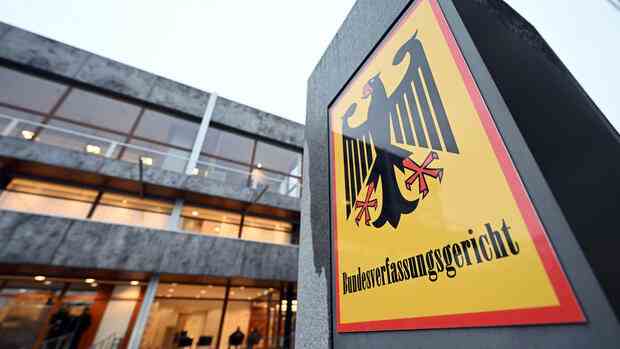The court decides whether the reallocation of the funds violates the debt brake in the constitution.
(Photo: dpa)
Karlsruhe According to a decision by the Federal Constitutional Court, funds in the federal budget intended to combat the corona crisis may initially continue to be used in favor of climate protection. An urgent application for a temporary injunction, however, was dismissed. However, the court will examine the questions in detail in a main proceedings, as announced in Karlsruhe on Thursday.
The Union in the Bundestag had gone before the highest German court. The Karlsruhe decision was announced in writing. (Az. 2 BvF 1/22)
With the approval of the Bundestag, the federal government is retrospectively reallocating 60 billion euros in unused credit authorizations in the budget so that they can be used for investments in climate protection in the coming years. The loans were originally approved to combat the corona crisis.
The reason given was that the consequences of an interim order would have been too severe if it later turned out in the main proceedings that the changes were constitutional. As an example, the Second Senate mentioned that the so-called EEG surcharge could no longer be financed from the reallocated funds, which would result in an electricity price increase and additional burdens for consumers and companies.
Top jobs of the day
Find the best jobs now and
be notified by email.
The Union in the Bundestag sees the reallocation as a circumvention of the debt brake, which is laid down in the Basic Law. Group leader Friedrich Merz (CDU) emphasized when presenting the lawsuit that it was not directed against sufficient funds to deal with the climate crisis.
The Union is only opposed to a budgetary measure. She does not deny the climate and transformation fund itself, but the financing.
More: Risk of state-owned companies – why a huge shadow debt state is emerging in Germany
